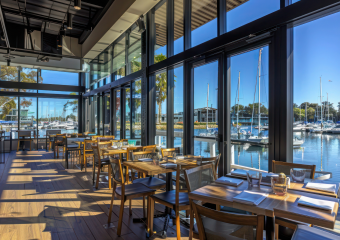Diners AI Highlights the Rise of Ethical and Sustainable Kitchens
Diners AI, an innovative approach revolutionizing the culinary world, spotlights a significant shift toward ethical and sustainable kitchen practices. In recent years, the upheaval in the dining industry, coupled with a growing consciousness among consumers about the impacts of their food choices, has accelerated a reshaping of how restaurants operate and serve society.
Understanding Ethical and Sustainable Kitchens
The concept of ethical and sustainable kitchens encompasses more than just sourcing organic ingredients. It delves deep into how restaurant operations can minimize waste, lower carbon footprints, and improve labor practices. This paradigm fuses considerations for environmental health, employee welfare, and the delivery of authentic, non-exploitative culinary experiences to consumers.
A sustainable kitchen aims to operate in a way that supports and sustains the local ecosystem rather than depleting it. This includes using locally sourced ingredients to reduce transportation emissions, deploying energy-efficient kitchen technologies, and designing menus that capitalize on seasonal produce. Ethically, these kitchens ensure fair wages and humane working conditions for their staff, fostering a workplace based on respect and fairness.
The Role of Technology in Pioneering Change
Innovative technologies, such as Diners AI, are at the forefront of this transition. Artificial intelligence in the culinary world isn’t just about robot-chefs; much of its power lies in its capability to optimize food preparation processes, track the sustainability of sourcing methods, and predict consumer trends towards more ethical choices.
For instance, AI systems can analyze vast amounts of culinary data to identify the most environmentally detrimental practices in a kitchen, recommend alternative solutions, and even help create recipes that reduce waste. This might include devising optimal uses for typically discarded food parts or finding the most energy-efficient cooking methods per dish.
Leveraging Consumer Influence
Consumer demand plays a pivotal role in promoting ethical and sustainable practices. As awareness grows, diners increasingly favor establishments that actively reduce their environmental impact and care for their employees. Restaurants pioneering these practices often share their ethos and operations openly, leveraging transparency as a tool to attract conscientious diners.
This demand has led to restaurants obtaining certifications like organic or fair-trade, which serve as easy indicators of sustainable and ethical commitments. Moreover, modern diners often turn to social media and restaurant review platforms to echo their approval or disconcertion regarding a restaurant’s practices, influencing peers and shaping dining trends.
Educational Initiatives and Collaborative Efforts
Education is crucial for sustaining momentum in this movement. Cooking schools, culinary institutes, and even online courses now increasingly incorporate sustainability and ethics into their curricula. By educating the next generation of chefs and restaurateurs on these issues, the industry prepares a workforce that values these principles in every aspect of dining and hospitality management.
Furthermore, collaborations among restaurants, local governments, and non-profits help amplify the impact of sustainable practices. These partnerships can lead to community-driven projects such as shared green spaces for growing food, collective composting programs, and local food festivals that showcase sustainable approaches to a wider audience.
Future Prospects
Looking ahead, the intersection of ethical considerations and technological advancements promises even greater strides in developing truly sustainable kitchens. From blockchain for tracing the precise origin of ingredients to AI-driven systems that minimize energy usage, the potential for integrating more profound ethical practices into every layer of the culinary experience is immense.
As Diners AI and similar technologies become more nuanced and accessible, the culinary world stands on the brink of a revolution, not just in how food is prepared and consumed but in how it resonates with the deeper values of society. The rise of ethical and sustainable kitchens is not merely a trend but a profound evolution in the cultural fabric of dining, defining a new era where what we eat reflects our collective commitment to the planet and each other.
By navigating through these aspects, the industry not only adapts to the current demands of the consumer but sets a standard that could profoundly influence global food practices. This ongoing shift led by innovations like Diners AI does more than illuminate trends; it crafts a roadmap toward a resilient and ethical dining ecosystem.





